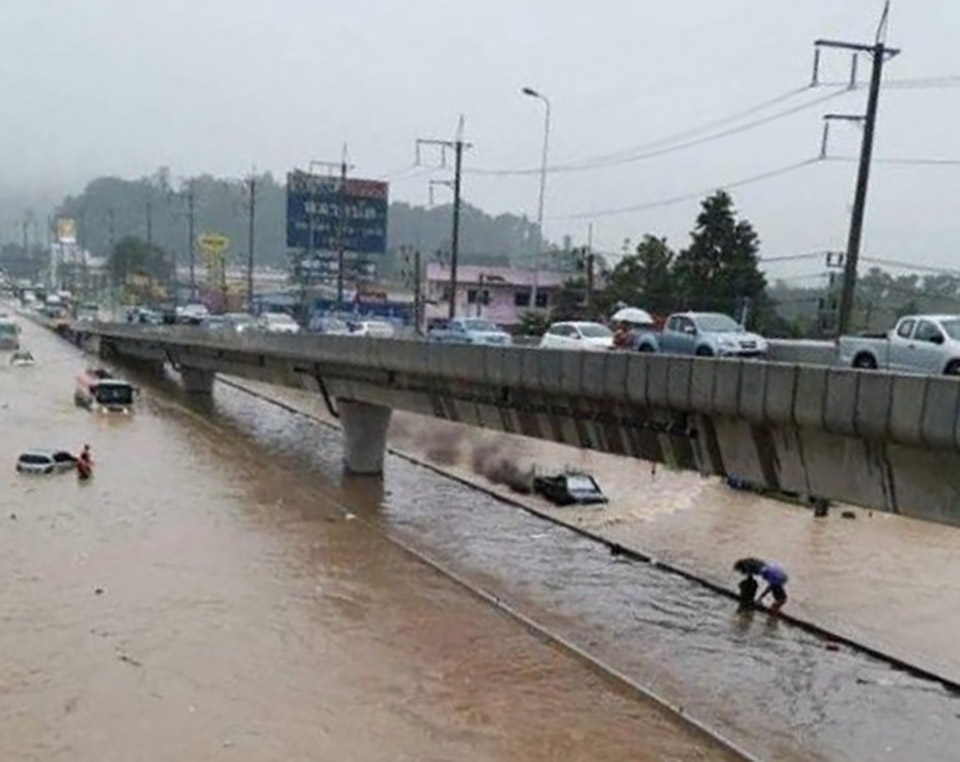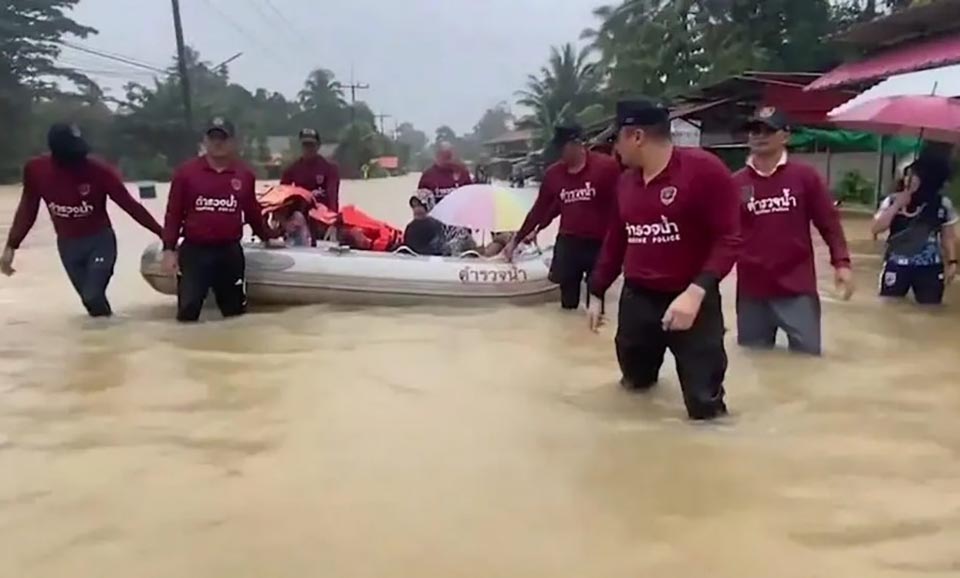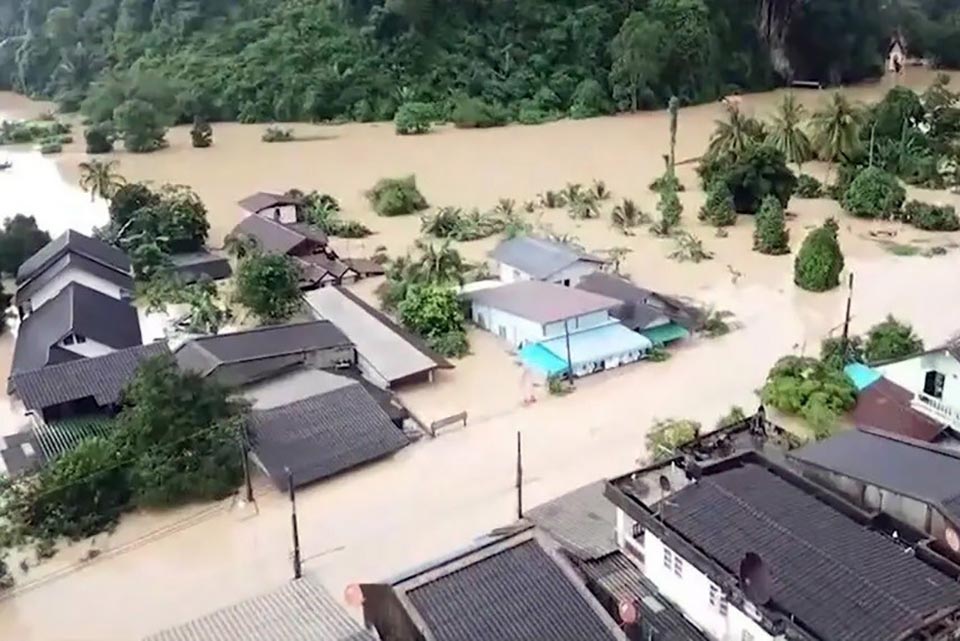
NARATHIWAT, Thailand – Heavy rainfall has caused widespread flooding in Southern Thailand, affecting over 100,000 people in Narathiwat province alone, Nov 28.
Schools have been closed, roads cut off, and residents evacuated as water levels continue to rise.
In Narathiwat, three major rivers – Bang Nara, Sai Buri, and Go-Lok – have overflowed their banks, inundating agricultural lands and residential areas in 13 districts. Approximately 42,000 households, totaling 150,000 people, have been affected, with four districts – Ra-ngae, Rueso, Waeng, and Su-ngai Kolok – hit hardest.
About 60 schools have temporarily closed as several roads are completely impassable. Inter-provincial passenger vans have been suspended.
In Satun Province, two districts are also experiencing significant flooding. Local wildlife conservation authorities have closed two major tourist attractions – Phu Pha Phet Cave and Wang Sai Thong Waterfall – until conditions improve.
In Songkhla Province, residents are anxiously monitoring water levels in Hat Yai business district, with concern growing about potential urban flooding. Two main canals show rising water levels with nine communities currently on yellow alert. Several schools temporarily suspended classes.
In Yala province, the situation in Yala remains critical with five districts currently impacted and 107,741 people affected. Water levels have reach nearly 2 meters in some areas and continuous heavy rainfall has exacerbated conditions.
Local authorities are coordinating emergency responses, prioritizing the evacuation of vulnerable populations including bedridden patients, elderly, disabled individuals, and children to safe shelters. (TNA)












